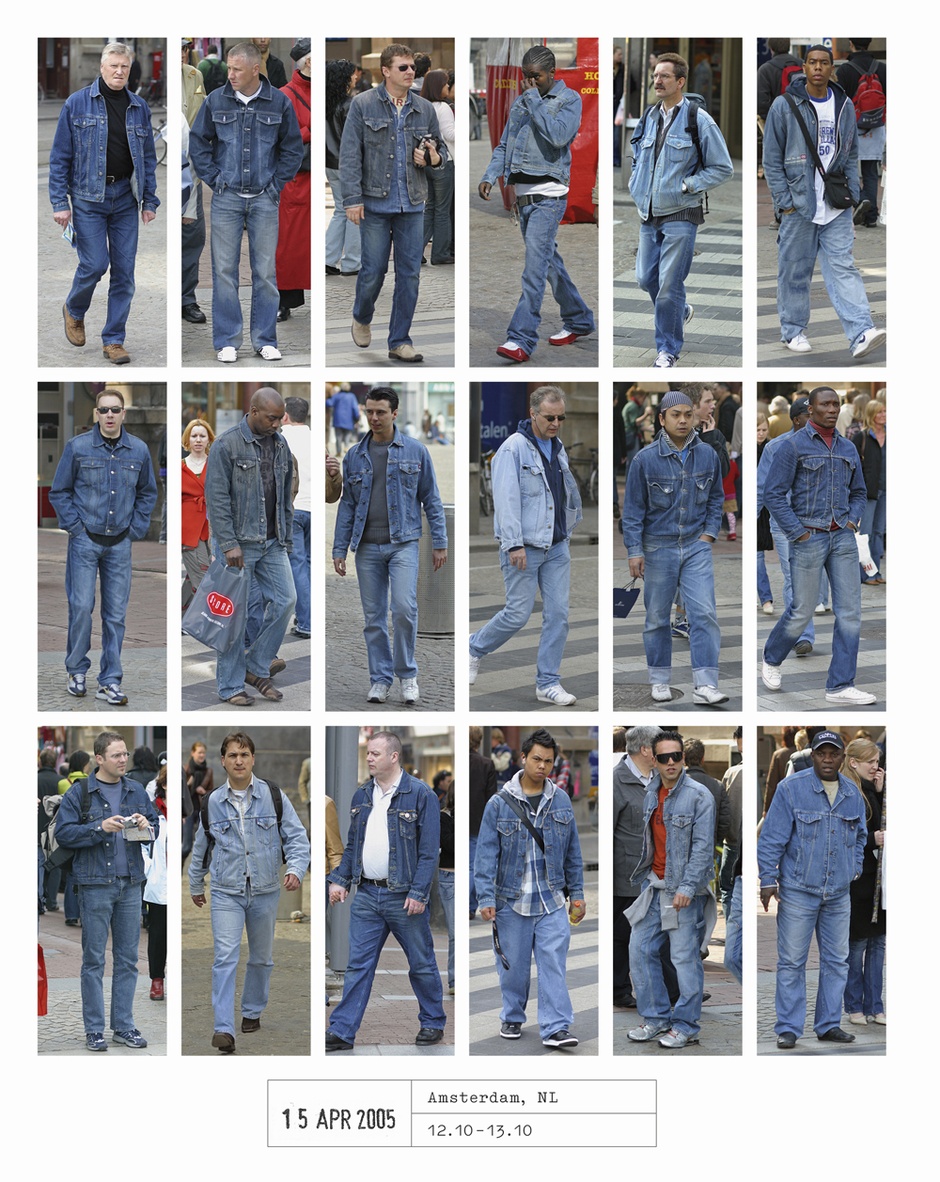Persistent sameness
I read two really interesting pieces over the weekend, the first was a really long, (I mean really long, give yourself an hour or so to take this one on), review and analysis of the Sony Pictures Entertainment hack. This is an endlessly interesting and evolving story, I blogged about it briefly last week, but even just a week later it is probably worth revisiting, as the repercussions from this case are only just starting to be felt.
The second piece that caught my attention is quite unlike the Sony tale, is much lighter (fitting the start of what is for most a short, holiday week), but no less interesting, just in a different way.
The piece comes from Citylab.com and is titled 20 Years of Street Photography Shows Just How Boring We All Are, a review of the work of Dutch photographer Hans Eijkelboom over that past two decades.
From the Citylab piece:
Since 1993, he has worked on his "photo notes"—arriving in a city, setting up on a major street, and then, within 10 to 15 minutes, choosing a recurring visual theme before shooting in the same spot for one to two hours. Once he's done, he puts the best examples into a grid, with the place and time at the bottom of the page. This technique yielded a stream of Louis Vuitton-style murses in 2006 Paris, a pack of Canadian tuxedos (denim on denim, see the image on the right) in 2007 Amsterdam, and an army of shirtless rollerbladers in 1997 New York.
I grabbed the example of the Canadian tuxedos to run with the post, but you really should click over to Citylab to see some of the other examples that Eijkelboom has captured over the years. And the interesting part is that these collages of sameness only take about an hour or two to compile, and probably could be even larger if they were not edited down for presentation.
I am not going to overthink the significance of these observations and images, it is pretty obvious I guess that most folks like to fit in, to swim with the prevailing tide with respect to fashion anyway. I suppose the greater danger arises when we allow this tendency towards sameness to extend other areas that are not as trivial as fashion choices. I will think about that when I see the 27th article this week about why 'Employee engagement is important' or '5 Tips to be Super Amazing in 2015' that gets shared relentlessly on social media.
When we all tend to dress the same you get the funny and sort of ridiculous images in the Eijkelboom works. When we all seem to read the same things, quote the same quotes, listen to the same Ted Talks - you get the idea, we end up with something worse that a picture of two dozen people in the same shirt.
It's worse that than, but it's much harder to take a picture of what it looks like.
Have a great week!

 Steve
Steve
